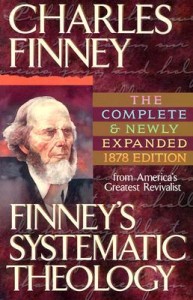 How do I combine Phil Robertson and Charles Finney? Rather easily. Robertson spoke clearly on the nature of sin, yet also said we had to love everyone, even those caught up in sin. Finney, in his Systematic Theology, puts it this way:
How do I combine Phil Robertson and Charles Finney? Rather easily. Robertson spoke clearly on the nature of sin, yet also said we had to love everyone, even those caught up in sin. Finney, in his Systematic Theology, puts it this way:
The command is, “Thou shalt love thy neighbor as thyself” (Matt. 19:19). This says nothing about the character of my neighbor. It is the value of His [God’s] interests, of His well-being, that the law requires me to regard. It does not require me to love my righteous neighbor merely, nor to love my righteous neighbor better than I do my wicked neighbor. It is my neighbor that I am to love. . . .
But while the law requires that this should be willed to all . . . irrespective of character, it cannot, and does not require us to will that . . . any moral agent in particular, shall be actually blessed but upon condition that he be holy. Our obligation to the unholy is to will that they might be holy, and perfectly blessed.
While we are to desire the best for all, we need to recognize the basic Gospel truth that sin must be done away with first. No one who remains in sin can receive the ultimate blessing of God. Sin separates from God; only through repentance and faith in the work of Christ on the Cross can any of us enter into His kingdom. That’s Finney’s message, and it’s Robertson’s message as well. But more than that, it’s the Biblical message.
